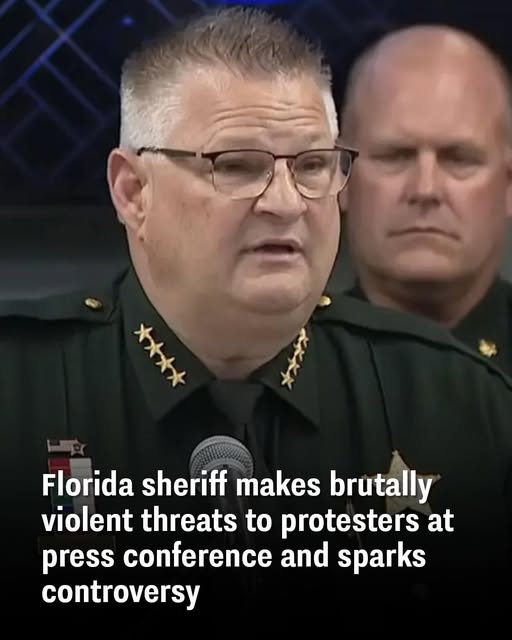Sheriff’s Threatening Remarks on Immigration Protests Spark Constitutional Outcry
Brevard County Sheriff Wayne Ivey has ignited national controversy following a fiery press conference in which he issued graphic threats of force against those planning to protest upcoming immigration enforcement actions. Ivey warned that demonstrators could face jail, injury, or even death if they disobey laws or confront law enforcement — statements that many legal experts say may cross both ethical and constitutional lines.
His comments come amid heightened tensions surrounding recent ICE crackdowns and a wave of protests across major U.S. cities. Civil rights organizations and constitutional scholars swiftly condemned the sheriff’s remarks, arguing that such rhetoric could chill First Amendment rights and potentially violate Florida’s laws against criminal threats.

The American Civil Liberties Union (ACLU) and the NAACP have called for accountability, with several progressive lawmakers urging investigations into Ivey’s conduct — and even possible removal from office. Conversely, supporters of the sheriff praised his aggressive stance as a necessary message to maintain law and order during times of civil unrest.
This incident touches on broader national debates about how to balance public safety with the right to peaceful protest, especially in the aftermath of the 2020 demonstrations and ongoing scrutiny of police practices. Critics argue that hostile, intimidating communication from law enforcement officials can escalate tensions, reduce community trust, and deter lawful assembly.
On the other side, advocates for Ivey’s approach see strong rhetoric as a deterrent against unlawful behavior and violent unrest.
The controversy underscores the need for measured, professional communication from law enforcement leaders, particularly in politically charged environments. It also raises urgent questions about accountability for elected officials, the boundaries of free speech in law enforcement, and how communities can ensure the protection of democratic freedoms while preserving public safety.